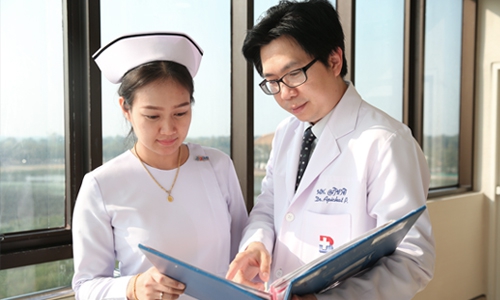
The number of people diagnosed with cancer is increasing every year. This trend is caused by factors such as genetics or unhealthy lifestyles. However, we can protect ourselves from cancer with only a few very simple steps. We can start by eating healthy foods, strengthening our bodies with regular exercise, and clearing our minds from stress. But, the most important thing we can do to reduce the risk cancer poses us is to identify it as early as possible.
Cancer screening can start at the age of 30, and there are many different screening methods, depending on the cancer. All these methods, though, are effective and have had good results in providing a way to prevent and treat cancer in a timely manner.
What is a cancer screening test? Cancer screening is a way to detect cancer early in people who have no symptoms with the goal of reducing morbidity and mortality from cancer. Cancer screening assesses who is at greater risk relative to the general population. Screening for specific cancers is an accepted and highly beneficial method for those at risk or anyone worried they may have cancer. Screening is one of the first lines of defense in fighting cancer, since, if cancer can be detected at an early stage, there is a higher chance for a cure. Early detection can also lead to people with cancer living a longer and higher quality life. Although most people consider cancer a terrifying disease, most cancers are curable. Importantly, the number of cancer survivors is surprisingly high. Survey data out of developed countries in Europe and North America show that the death rate among cancer patients has decreased as a result of modern cancer treatments, new scientific findings, and advancements in various cancer screening tools. Screening is invaluable because it allows an abnormality to be identified before the cells become malignant or metastasize, thus increasing the chance for remission.
What you need to know about prevention and treatment of cancer
- Liver cancer is the most commonly reported type of cancer among both men and women, according to data from Thailand’s Bureau of Policy and Strategy at the Ministry of Public Health. It is especially common in those with a history of hepatitis, cirrhosis from alcohol consumption and in those that have fatty liver disease or have received a blood transfusion. It is recommended that screening for liver cancer is completed annually in the general public. However, in those with a history of liver disease, such as viral hepatitis, screening for liver cancer is recommended every 6-12 months.
- Prostate cancer is the fourth most common cancer in men, according to data from the National Cancer Institute. Prostate cancer screening should begin at age 50.
- Lung cancer is the second most deadly cancer in both men and women, being associated with both smoking and with environmental air pollution. Lung cancer screening should begin at 50, but if there is a family history of cancer, lung cancer screening can be completed earlier.
- Cervical cancer is the second most common cancer in women. It is mainly caused by human papillomavirus (HPV). All women that have been sexually active for 3 years or are aged 30 or older should be screened for cervical cancer. However, if there is a family history of cervical cancer, the screening program can begin earlier.
- Colorectal cancer is the third most common form of cancer among men and fifth most common in women. The risk of developing colorectal cancer is higher if there is a family history of it. Colorectal cancer screening is recommended to be completed once every 5-10 years starting at age 50. However, a screening program can be started anytime if there is a family history.
- Breast cancer is the number 1 most commonly reported cancer in women, according to data from the National Cancer Institute. Women with a family history of breast cancer are at higher risk. Breast cancer screening should begin by the age of 40 but can be started earlier for those with a family history.
For more information, please contact the Surgery Clinic on the 1st Floor of Bangkok Hospital Khon Kaen, or call us at either 1719 or 043-042790.